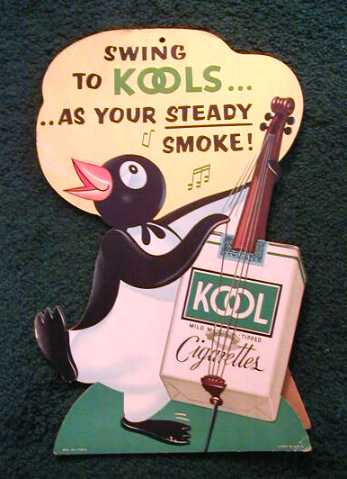In March 2012, Business Strategy Insider wrote about various issues in Ethics in Marketing, such as promoting harmful products to consumers, encouraging consumers to buy products they don’t need, or doing what is in the consumer’s best interest versus catering to what the consumer wants.
I would like to expand on one of the topics raised in their article, specifically promoting harmful products to consumers. As seen above, two product categories whose advertising are now heavily regulated, especially towards children and minors, include junk food and cigarettes.
More than 50 years ago, in the 1960’s, cigarette advertisements that targeted children were prevalent across many advertising channels. However, recognizing the adverse effects of cigarettes on human health and to prevent children and minors from developing a habit for cigarettes, by 1971, advertisements of cigarettes on TV and radio were banned. Today, cigarettes may only be advertised in adult-only establishments which restrict all minors from entry. Not only is selling cigarettes to children and minors unethical, it is also illegal.
If marketing cigarettes to minors is illegal and unethical because it may cause them potential harm, we may then start to draw parallels with another potentially harmful product on the market that is not banned by any means: junk food.
By encouraging children to eat junk foods through marketing, companies are potentially leading these children down a path of lifetime obesity, as researched in this article, Protecting Children from Harmful Food Marketing: Options for Local Government to Make a Difference. Junk food purveyors, such as McDonalds, will often market directly to young children, such as through their products, Happy Meals and toys, and promotion, such as television ads with cartoons and toys, specifically targeted to children’s tv shows. When they do this, marketing ethics are called into question. Is it right to push one of the most vulnerable and easily influenced consumer groups towards foods that harm their bodies and cause them to incorporate these foods into their daily eating habits? Many don’t think so and as a result, throughout elementary, middle and high schools, new initiatives are being pursued to reduce the amount of junk food consumed by children. Advertisements, a form of promotion, featuring junk foods are now banned in schools and school vending machines and cafeterias are making the shift towards healthier and fresher foods – away from packaged and preserved goods – which is both a place limitation for junk food companies.
As time passes and the obesity epidemic becomes more severe, we may see that junk food marketing regulations towards children will slowly come to resemble those of cigarettes – more severe and strictly regulated.



One response to “[Marketing Ethics] Making Harmful Products Appealing”